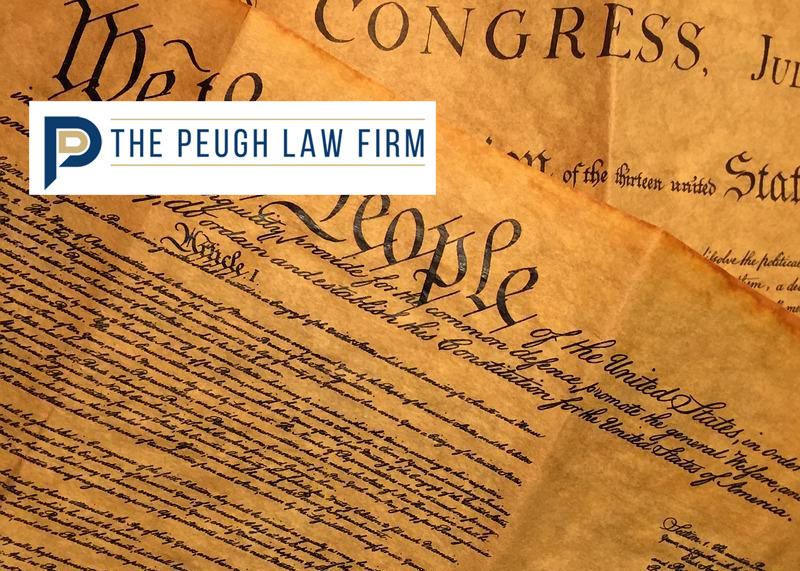When Should You Plead the Fifth?
You probably learned about the Fifth Amendment in middle school, but you may have forgotten how “pleading the fifth” protects your rights. If you’re a fan of the TV show “Law & Order” then you’ve seen the detectives explaining the Miranda rights to suspects they take into custody.
The Fifth Amendment
The Fifth Amendment says that no one shall be held in custody for crime unless they have been indicted by a Grand Jury. Exceptions are if they are in the armed forces, the militia, serving in war time or are a danger to the public. Also, no one should be charged with the same crime twice (putting them in double jeopardy) nor be forced in a criminal case to testify against themselves. And no one should have their life, liberty, or property taken away without due process of law.
The Fifth Amendment was passed to protect citizens from being forced to incriminate themselves while being interrogated by law enforcement about a crime. The law spells out the Constitutional limits on law enforcement in carrying out their investigations. The Fifth Amendment is comprised of five Constitutional rights of every citizen:
- The right to have a Grand Jury hand down an indictment prior to being charged with a felony.
- Protection against double jeopardy, which protects a defendant from facing charges and a trial for the very same crime twice or even more times.
- Defendants are guaranteed a fair, unbiased, and impartial trial.
- Citizens are guaranteed protection from the government seizing their private property without being paid the amount of the property’s fair market value.
- People have the right to “plead the Fifth” to avoid self-incrimination.
At first, these Fifth Amendment rights only applied to federal cases. However, the U.S. Supreme Court, has over the years incorporated all but one of these provisions to state courts via the Fourteenth Amendment’s Due Process clause. The one exception is the right to a Grand Jury indictment before being charged with a crime.
When are you legally allowed to remain silent?
The Fifth Amendment, which gives people the right to remain silent, is intended to protect them while being questioned by police and/or during a trial. You are entitled to “plead the Fifth” by not answering questions and keeping your mouth shut at all times. But you need to know that the police can avoid reading you your Miranda rights until you are actually being taken into custody.
Therefore, if you decide to speak to the police, you will not be legally protected just because they did not first read you your rights. This is why it’s important that you reach out to a lawyer as soon as you realize that law enforcement wants to question you. This applies even if they are not arresting you. Your lawyer will know how to protect your legal rights and what types of statements could be incriminating.
The Miranda rights came into effect in 1966 after the U.S. Supreme Court issued a ruling in a case involving Ernest Miranda. This man had been arrested and convicted of a crime without knowing that he had a Constitutional right to avoid incriminating himself and that he had a right to an attorney. The Miranda ruling states that the police must inform you of your right to remain silent and that you have a right to an attorney.
To be specific, your Fifth Amendment right to remain silent means that you can refuse to answer questions whenever you want. Furthermore, you have a right to consult with an attorney prior to and while you’re being questioned. This means that your attorney can sit with you during questioning. So, if you initially agree to answer questions and then decide you want to speak to a lawyer, you have the right to end the interrogation right then and ask for an attorney.
What does invoking your Fifth Amendment rights mean exactly?
If you’ve agreed to be questioned by law enforcement but then stop responding to their questions, your refusal to respond could be mentioned in court. If you have not been put in custody or you stay silent without clearly saying that you have decided to invoke your Fifth Amendment rights, your refusal to respond might be taken as an admission of guilt.
Remember, the Fifth Amendment not only allows you to remain silent to protect you against incriminating yourself it also gives you the right to have an attorney. Even if the police have not arrested you and are saying that they are only interested in hearing “your side of what happened,” you need to ask for a lawyer before answering any questions. If you are under arrest, immediately get yourself a good criminal defense attorney.
If you or a family member in Denton, TX are facing criminal charges, please call The Peugh Law Firm at (940) 566-0271 to schedule a free consultation with attorney Daniel K. Peugh.





